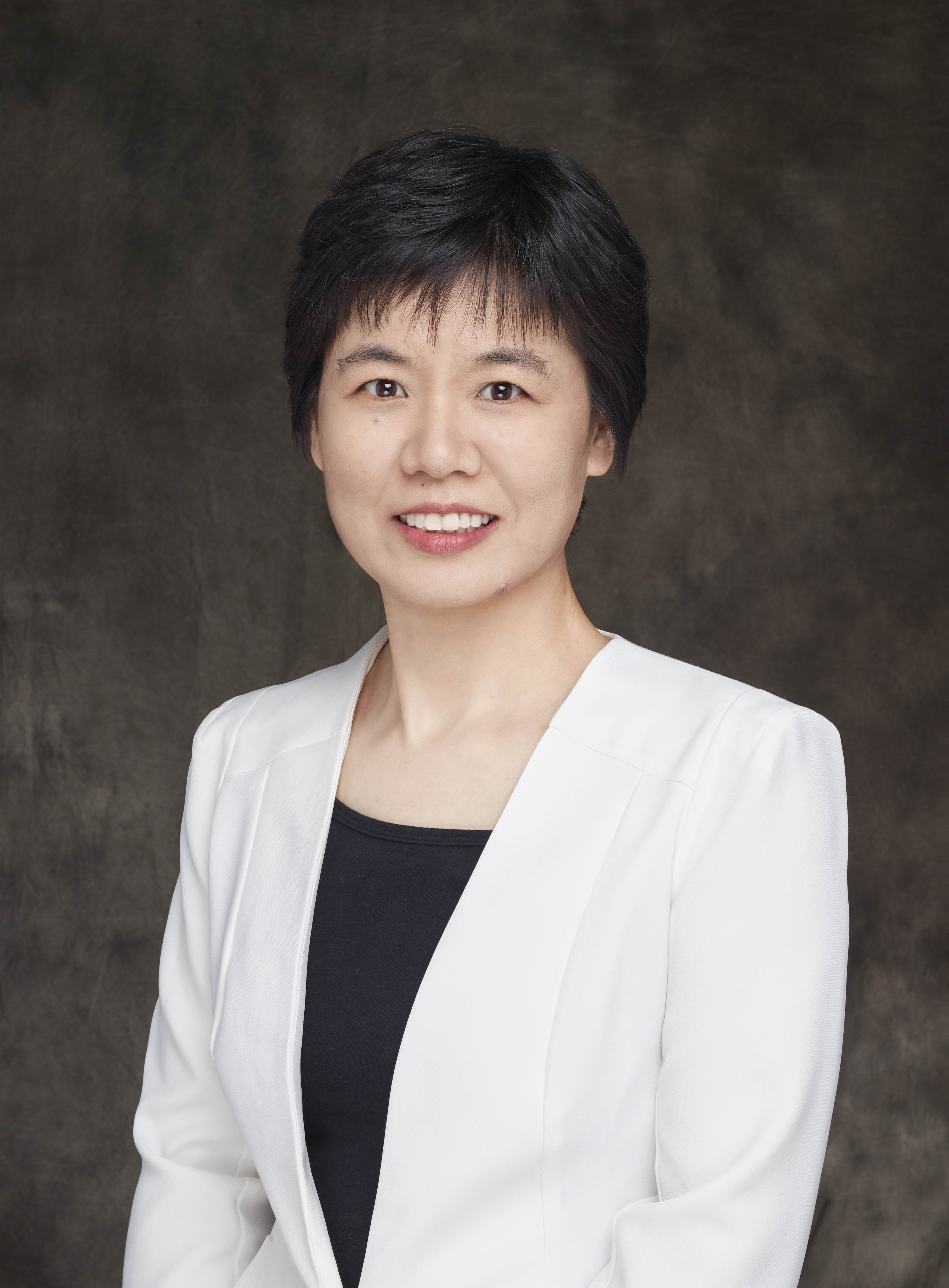
Dr. Yun Shang
Professor of Computer Science
Institute of Mathematics
Academy of mathematics and Systems Science
Chinese Academy of Science
Address: No. 55, Zhongguancun East Road
Postcode: 100190
Email: shangyun@amss.ac.cn
Phone: (86)-10-82541619
Research Areas
Quantum computing and quantum information, quantum walk, quantum machine learning
quantum dot cellular automata, complex network
Education
l PH.D. Mathematics, Shaanxi Normal University
l M.S. Mathematics, Shaanxi Normal University
l B.S. Mathematics, Shandong Normal University
Work Experience
l 4/2018--- Professor
Academy of Mathematics and Systems Science, Chinese Academy of Sciences
l 3/2010-3/2018 Associate Professor
Academy of Mathematics and Systems Science, Chinese Academy of Sciences
l 11/2012-4/2013, Visiting Scholar, Free University of Berlin
l12/2010, Visiting Scholar, Australian National University
l 7/2007-2/2010, Assistant Professor
Academy of Mathematics and Systems Science, Chinese Academy of Sciences
l 7/2005 -6/2007, Postdoctoral Researcher
Academy of Mathematics and Systems Science, Chinese Academy of Sciences
Honors & Distinctions
Science and Technology Advancement Award of China Computer Federation (Second Class,2021)
China Top cited paper award by IOP publishing in 2021.
Senior visiting scholarship of Wong Kuan-Cheng Education Foundation in 2012.
Science and Technology Advancement Award of Shaanxi Province (Second Class) in 2008
Excellent Doctoral Dissertations of Shaanxi Province in 2007
Outstanding Doctoral Graduates of Shaanxi Province in 2005
Outstanding Doctoral Graduates of Shaanxi Normal University in 2005
Publications
Shi X., Shang Y., Guo C., Clustering using matrix product states. Physical Review A, 2022,105, 052424.
Li. M., Shang Y., Entangled states generation via quantum walks with multiple coins. NPJ Quantum Information, 2021, 7:70.
Li. M., Shang Y., Dynamics of coherence in quantum walk with two coins. Journal of Computer Research and Development, 2021, 58(9), 1897-1905.
Li. M., Shang Y.,Generalized exceptional quantum walk search. New Journal of Physics. 2020, 22 123030
Shang Y., Li M., Experimental implementation of state tran sfer by quantum walks with two coins. Quantum science and technolog y , 2019, 5 015005
Shang Y., Wang Y., Li M., Lu R.Q., Quantum communication protocols by quantum walks with two coins. EPL, 124 (2018) 60009
Cheng X.Y.,Shang Y., New bounds of mutually unbiased maximally entangled bases in c^{d}*c^{kd}. Quantum information and co mputation Computation,(2018),13&14, 1152-1164.
Wang Y., Shang Y., Xue P. (2017), Generalized teleportation by quantum walks. Quantum Information Processing, 16, 221.
Wang Y., Shang Y. (2018), Pure state ‘really’ informationally complete with rank-1 POVM. Quantum Information Processing, 17, 51.
Cheng X.Y.,Shang Y. (2018),Construction of orthogonal extraordinary supersquares and mutually unbiased bases. Science China:physics,mechanics & astronomy. doi/10.1360/SSPMA2018-00022.
Lu X., Shang Y., Lu R.Q., Zhang J., Ma F.F. (2017), Weak QMV algebras and some ring-like structures, Soft Computing, 21, 2537-2547.
Shang Y., Lu X., Lu R. Q.(2015), Computing power of Turing machines in the frame work of unsharp quantum logic. Theoretical Computer Science, 598, 2-14.
Cao X., Shang Y.(2014), Fermionic one way quantum computing. Chinese Physics Letters, 31, 110302.
Shang Y., Lu X., Lu R. Q. (2012), A theory of computation based on unsharp quantum logic: finite state automata and pushdown automata. Theoretical Computer Science, 434, 53-86.
Lu X., Shang Y., Lu R. Q. (2012), A direct product decomposition of QMV algebras. Science China Mathematics, 55, 841-850.
Kong K., Shang Y., Lu R. Q. (2011), Counter designs in Quantum-Dot cellular automata, Nanotechnology (IEEE Nano), 1130-1134.
Kong K., Shang Y., Lu R. Q. (2010), An optimized majority logic synthesis methodology for Quantum-dot cellular automata. IEEE Transaction on Nanotechnology, 19, 170-183.
Shang Y., Lu X, Lu R.Q. (2009), Automata theory based on unsharp quantum logic. Mathematical Structures in Computer Sciences, 19, 737-756.
Shang Y., Chen, M. Y., Kurths J.(2009), Generalized synchronization of complex networks. Physical Review E, 80, 027201.
Shang Y. (2009), Ring-like structures corresponding to pseudo MV algebras. Soft Computing. 13, 71-76.
Chen M. Y., Shang Y., Zhou, C. S., Wu Y., Kurths J.(2009), Enhanced synchronizability in scale-free networks. Chaos, 19, 013105.
Chen M. Y., Shang Y., Zou Y., Kurths J. (2008), Synchronization in the Kuramoto model: a dynamical gradient network approach. Physical Review E, 77, 027101.
Wu Y., Shang Y., Chen M. Y., Zhou C. S., Kurths J. (2008), Synchronization in small-world networks. Chaos, 18, 037111.
Shang Y., Lu R. Q. (2007), Semirings and pseudo MV algebras. Soft Computing, 11, 847-853.
Shang Y., Li Y. M. (2007), Generalized ideals and supports in pseudo effect algebras. Soft Computing, 11, 641-645.
Shang Y., Li Y. M., Chen M. Y. (2004), Constructions of some quantum structures and fuzzy effect space. International Journal of Theoretical Physics, 43, 1219-1229.
Shang Y., Li Y. M., Chen M. Y. (2004), Pseudo difference posets and pseudo Boolean D-posets. International Journal of Theoretical Physics, 43, 2447-2460.
Shang Y., Li Y. M., Chen M. Y. (2004), Anti-BZ-structures in effect algebras. International Journal of Theoretical Physics, 43, 359-368.
Shang Y., Li Y. M. (2003), Generalized ideals in orthoalgebras. International Journal of Theoretical Physics, 42, 2823-2829.
Shang Y. and Zhao B. (2003), Some characterization theorems on maximal point spaces. Acta Mathematica Sinica, 46,1233-1238. (In Chinese)
Shang, Y. and Zhao, B. (2004), Z-connected set system and its category character. Acta Mathematica Sinica, 47,1141-1148. (In Chinese)
Students
已指导学生
曹信 硕士研究生 081202-计算机软件与理论
程晓雅 硕士研究生 081202-计算机软件与理论
李萌 博士研究生 081202-计算机软件与理论
王宇 博士研究生 081202-计算机软件与理论
李昕莹 硕士研究生 081202-计算机软件与理论
石骁 博士研究生 081202-计算机软件与理论
林鸿鸿 硕士研究生 070104-应用数学
现指导学生
陈天恩 博士研究生 081202-计算机软件与理论
白旭峻 硕士研究生 081202-计算机软件与理论
王明珠 博士研究生 081202-计算机软件与理论
王涛 硕士研究生 070104-应用数学
李蕊 硕士研究生 081202-计算机软件与理论
林鸿鸿 博士研究生 081202-计算机软件与理论
